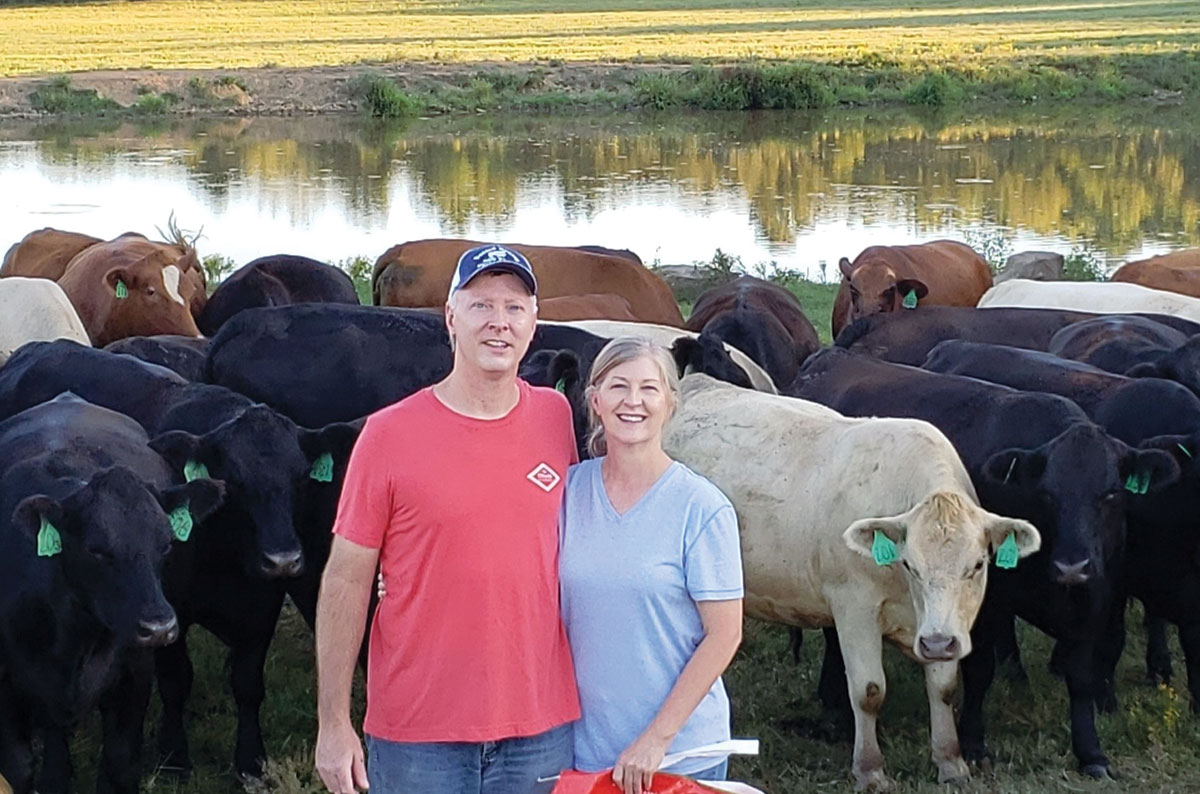
Paul and Theresa Schot have a small raw milk dairy and produce hydroponic crops
YELLVILLE, ARK. – We don’t have to tell farmers and ranches that a lot can change in a decade. Especially not people like Paul and Theresa Schot who own Schot’s Slopes Farm. It’s been more than a decade since we last talked to Paul Schot about their farm near Yellville, Ark.
The Arkansas laws surrounding selling dairy directly to consumers had just begun, and they had just begun selling milk to their neighbors and friends. While the couple already had a garden, they were still working a growing hydroponics operation like they are now.
Paul is now retired and focuses on their farm operations. He worked in a hardware store for more than 15 years, where he met many types of people – including farmers.
They already had some dairy cattle they milked for personal use for about four or five years before the Arkansas laws changed to allow limited consumer selling.
They have a small herd of about five head, including their calves, breeding cows and two milking cows. They also keep a Dexter bull for breeding. The two milking cows are Jerseys or Jersey/Brown Swiss mixes.

“Mixed breeds seem to milk better. They are hardier and beefier. They just seem to hold up better,” Paul said.
Their cattle are largely grass-fed in the pasture, but they also receive alfalfa pellets when they come to the barn for milking.
“The alfalfa is more of a treat than anything,” Paul said with a chuckle. “We believe in keeping it as simple as possible.”
Nearly every animal they have on the farm was born and raised there, he added. The size of the milking operation changes based on a variety of factors but it has grown since they first started. They have three primary audiences: those who want the milk for the heavy cream, people wanting a healthier milk product than what they can purchase in the store, and people who want to support small farms such as Schot’s Slopes.
“They want to support small farms, and that’s their way of doing it,” Paul said.
A big reason they don’t grow more, however, is that the law still requires customers get their milk by coming to the farm. Not many people have been willing to make that trek with them far out in the rural part of the county. Paul readily admits that figuring out the demand can sometimes be complicated.
“It varies year to year,” he said. “Sometimes we can’t keep it in stock, and other times we can’t give it away.”
Another factor that keeps their operation somewhat small is limited acreage.

“We have about 10 acres with good grazing ground,” Paul said. “That limits my numbers too, but a lot is the customers. I wish I could predict what people are thinking.”
When it comes to the future of the small dairy market, a lot lies in needed changes to the current law, Paul said.
“The only way we’re going to survive is if the law changes to allow some sales at local farmers markets,” he said. “The law is keeping small dairies back. It was good when it passed but it now needs revisions and we need to get the right people behind it.”
Until then, Paul said he’s enjoying working with the small number of cattle he has.
“As soon as this feels like work, I’m selling off the cattle,” he said.
Another way Schot’s Slopes Farm has changed in the last decade is the Schots added an entire hydroponics operation to the farm. They’ve always had a garden, but they’ve taken it to a whole new level, Paul said. They switched about six years ago and the operation has grown since it first started.
“We sell a lot of greens,” he said, adding that they sell other produce, including a variety of berries, too. “Most quit selling greens in the summer but we sell it all summer long.”
The switch to hydroponics allows them more diversity, but also what Paul feels is a more sustainable way of growing.
“This is a positive over growing in the dirt because it’s cleaner and there’s no bugs,” he said.
While there are advantages to growing with hydroponics, there is also a bit of required finesse, Paul said.
Paul learned about how to do hydroponics from various sources, including YouTube videos and reading countless articles on best practices. He took what he learned and adapted to fit his needs and what he had available.
“I adjust to what works,” he said.
People now approach him regularly to get advice on how to grow various produce using hydroponics.
“People ask me about it all the time,” he said. “I give (advice) freely because I want to help people along. I didn’t have that when I was starting and I enjoy teaching people things.”
When possible, he invites people to the farm to get the “nickel tour” and learn how he goes about doing things with the advice to take what they learn on his farm and adapt it to their own needs.
As far as the future of hydroponics, he thinks that it has a good profit margin and it’s an easy way to grow greens and other produce.
“Anyone can do it,” he said. “It’s not rocket science to run it. Don’t be afraid to try it.”
Schot’s Slopes Farm can be found on Facebook.







